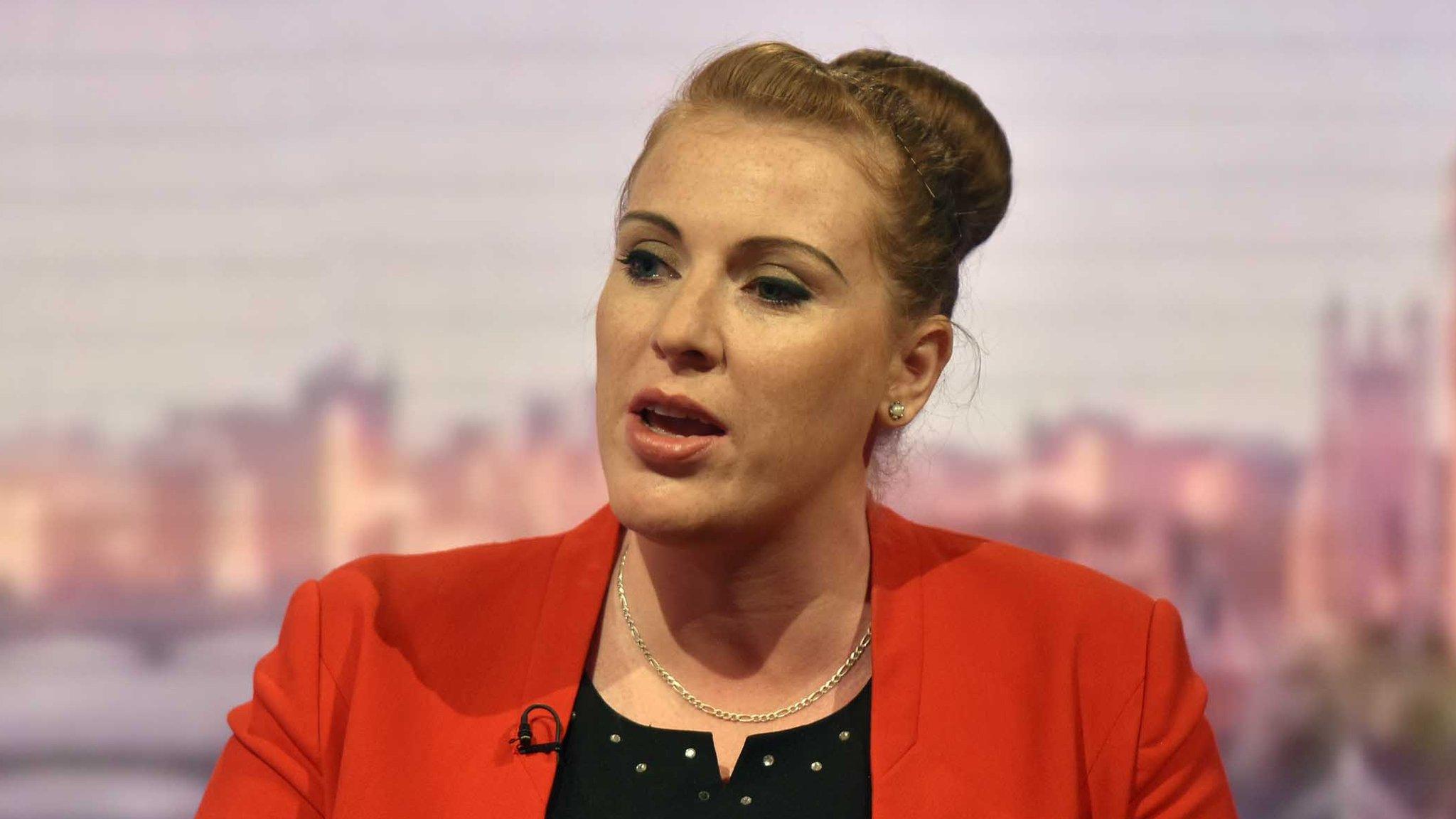Northern and Midlands trainee teachers 'told to change their accents'
- Published

What's the right way to pronounce "grass"?
It's the never-ending debate you have with your mates from other parts of the country.
But a linguist says that trainee teachers with northern or Midlands accents are being told to change their accents and "adopt southern pronunciation".
"I think it touches on classism, frankly," says Dr Alex Baratta from the University of Manchester.
Allow YouTube content?
This article contains content provided by Google YouTube. We ask for your permission before anything is loaded, as they may be using cookies and other technologies. You may want to read Google’s cookie policy, external and privacy policy, external before accepting. To view this content choose ‘accept and continue’.
English teacher Beth, who's from Wigan, told Newsbeat she was told to watch her accent "a couple of times" as a trainee.
"I do feel sometimes that people assume that you're less educated, or that you're not the best teacher just because you speak a little bit more broad."
Dr Alex adds: "To say that there's a standard accent today in Britain I think would go against the trend for equality and diversity.
"In truth, there is no standard accent. Everybody can speak standard English and have any accent whatsoever."

Beth has been asked to change her Wigan accent before
Beth thinks that her accent actually helps her teaching because "the students find me more approachable and want to speak to me, rather than shy away".
Dr Alex agrees: "If you have an accent that is different, it can be an attention grabber."
His conclusions come from four studies carried out since 2014, which he's put in a book called Accent and Teacher Identity in Britain: Linguistic Favouritism and Imposed Identities.
One of the 41 teachers Dr Alex interviewed for his studies said that her strong south London accent "made the kids warm up to her... so they saw her as more authentic".
Crucially, he also interviewed 55 primary and secondary school pupils who "all said, except for one voice, that no-one should be told how to speak".

Nearly all the school students in the studies said teachers should not change their accents
Despite pupils seemingly not minding a teacher with a different accent, Dr Alex says that around three quarters of teachers he spoke to had been asked to change their accent.
"It is mostly people from the North and Midlands who are being told to modify, even if they are going to teach in their place of origin."
One teacher from the Midlands, he says, "was told by her mentor that if she could not adopt southern pronunciation, then it was 'best to go back to where you come from'."
Another, from Lancashire, was told at an interview: "If you don't change the way you're speaking, I'm going to stop the interview."

But not all teachers had a problem with changing their accent.
Dr Alex describes one Yorkshireman who saw his 'home' self as distinct to his 'teacher' self.
"He saw it as if you have a job interview, you wear a suit and tie, then you come home and put your pyjamas on."
'Historic' Suffolk dialect celebrated by author
Newsbeat spoke to Jane, who's originally from Newcastle and now lives in Oxfordshire. She works in HR.
"I definitely struggle with the accent," she says. "I definitely no longer say 'mam' and 'alreet pet', I do have to soften it a little bit.
"I'm now quite often referred to by my mam as a posh Geordie."
Jane adds that her old boss "did actually put it in one of my one-to-ones that I needed to soften my accent and speak a little bit slower, which was a bit insulting".

Geordie accents haven't held these three back in their careers
Dr Alex says that mentors have said that they ask for trainee teachers to "soften" their accents so that they are better understood.
But he doesn't buy this argument.
"I don't personally feel that if someone goes from the North or the Midlands to the South, they're not going to be understood.
"It touches on class issues, which is something that people don't really want to get into.
"It's a bit of a taboo subject, but it doesn't mean we want to sweep it under the carpet."
The Department for Education told Newsbeat they would not comment on the issue.
Follow Newsbeat on Instagram, external, Facebook, external and Twitter, external.
Listen to Newsbeat live at 12:45 and 17:45 every weekday on BBC Radio 1 and 1Xtra - if you miss us you can listen back here.
- Published24 September 2017

- Published10 July 2017

- Published21 February 2018

- Published15 January 2018
